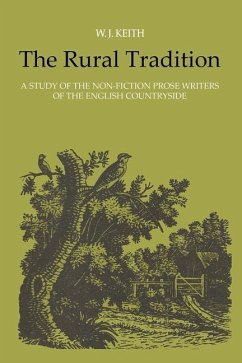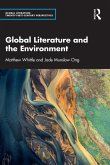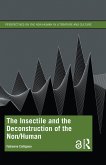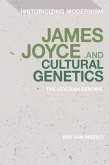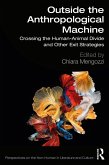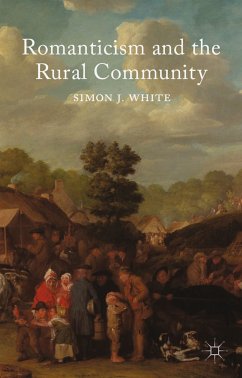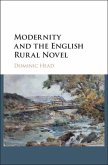'There is probably no single quality or characteristic - besides love of the countryside - that must inevitably distinguish a rural writer,' notes W.J. Keith. However, 'what distinguishes rural writing that belongs to literature from that belonging to natural history, agricultural history, etc., is, as Richard E. Haymaker has observed, the writer's "e;means of revealing Nature as well as describing her"e;...In the final analysis the rural essayist paints neither landscapes nor self-portraits; instead he communicates the subtle relationship between himself and his environment, offering for our inspection his own attitudes and his own vision. We may be asked to look or to agree, but more than anything else we are invited to share. Ultimately, then, the best rural writing may be said to provide us, in a phrase adapted from Robert Langbaum, with a prose of experience.' Keith argues that non-fiction rural prose should be recognized as a distinct literary tradition that merits serious critical attention. In this book he tests the cogency of thinking in terms of a 'rural tradition,' examines the critical problems inherent in such writing, and traces significant continuities between rural writers. Eleven of the more important and influential writers from the seventeenth century to modern times come under individual scrutiny: Izaak Walton, Gilbert White, William Cobbett, Mary Russell Mitford, George Borrow, Richard Jefferies, George Sturt/'George Bourne', W.H. Hudson, Edward Thomas Williamson, and H.J. Massingham.In examining these writers within the context of the rural tradition, Keith rescues their works from the literary attic where they have too often been relegated as awkward misfits. When studied together, each throws fascinating light on the others and is seen to fit into a loose but nonetheless discernible 'line.'
Dieser Download kann aus rechtlichen Gründen nur mit Rechnungsadresse in A, B, BG, CY, CZ, D, DK, EW, E, FIN, F, GR, HR, H, IRL, I, LT, L, LR, M, NL, PL, P, R, S, SLO, SK ausgeliefert werden.

